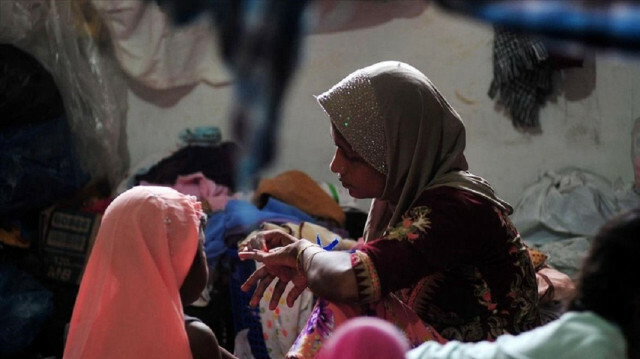
Tens of thousands of female Bangladeshi migrants across the world, especially in the Middle East, are facing deprivation, despite their activeness in boosting their host countries' economy.
According to the records of the South Asian nation's Bureau of Manpower, Employment and Training (BMET), nearly 12 million nationals, including 800,000 women, are working in different countries as migrant labor or overseas employees.
Bangladesh has achieved a record of more than $48 billion in foreign exchange reserves, while the delta nation received $21.76 billion in remittances in 2020, according to government records.
Most migrants are now working in Arab countries, including Saudi Arabia, United Arab Emirates, Lebanon, Kuwait, and Qatar.
For years, female Bangladeshi migrants have been suffering from discrimination, as well as physical and mental ill-treatment.
"I migrated to Lebanon eight years back, leaving behind my husband and two kids in my home country with a dream to make my family financially solvent. But, I came back home in January this year with empty hands," Hiron Nesa, 45, told Anadolu Agency via telephone from the central district of Manikganj.
She said that because of the coronavirus pandemic, her employer did not pay her wages through the last two years before sending her back to Bangladesh.
"It's a great mental agony for me that I couldn't even carry a smartphone for my son despite my promise to him," said Nesa, who added that during eight years of employment in Lebanon, she lived as a captive.
She also had to pay for the agent that arranged her job as a domestic worker in exchange for Bangladeshi Taka 100,000 ($1,200). "My agent never looked after me after my arrival in Lebanon and I had no way to contact our mission to get my due wages before returning," she said.
Nesa said she had to work hard overtime without extra pay. "I tolerated all the plights with the hope that at least before my final departure I could earn a good amount of money, but I got nothing."
- Socio-economic vulnerability
Despite this harsh reality faced by female migrants in the South Asian Muslim majority country of 170 million, their socio-economic vulnerability at home has prompted them to move abroad with a dream of solving their financial woes, according to analysts.
Shariful Islam Hasan, the head of the migration program at one of Bangladesh's largest development agencies BRAC, said that economic problems have left many women in rural areas vulnerable, while many others have been divorced, suffering violence over dowry, or face discrimination.
"These socio-economically vulnerable females are the main target of the greedy agents who frequently visit the remote areas of the country to trick them by offering lucrative jobs abroad," said Hasan.
Underlining that female migrants are assets for the nation's economy, he said they helped both their home country, as well as the nations they went for work.
"So both countries have a common responsibility to ensure the legitimate rights and due wages of the female migrants," he said, adding that every country must adopt a very strong policy for migrant workers.
He pointed out that in exporting its human resources, especially women, the government should formulate a robust monitoring system in affiliation with foreign missions and concerned authorities of overseas nations.
"The government must have a data bank on all its migrant workers abroad with details including telephone numbers of them and their foreign employers," he said. "Especially, every Bangladeshi foreign mission should preserve details of female migrants and continuously monitor them."
Kajuri Begum, 50, who has been working in Medina, Saudi Arabia for seven years, told Anadolu Agency that she has had no contact number for the Bangladeshi mission.
"I saw many Bangladeshi women who were sent back to the home country fully empty (handed) after all sorts of physical torture. Even gold jewelry were snatched away from them," she said. "What is the duty of our missions if not to hold information about us?"
She added: "My earnest request to the government, please make the employees in the missions more active."
- Assurance of boosting services
BMET Director-General Md. Shahidul Alam said the government has already issued specific directions to its diplomatic missions to improve their vigilance of migrant workers, with an emphasis on the safety, security, and other necessities of women.
"We have already launched non-stop services to many countries so that migrant workers can easily get all sorts of necessary support from the government without going to any third-party agents," said Alam.
On the plight of women in some countries, he said many go abroad, motivated by different factors without proper training.
"We are planning to develop a system so that all female migrants get pre-training at least two months before their departure so that they can decide well and cope with the foreign environment easily," he said.
On the Pre-Departure Orientation training, he said: "We have made online admission for training very easy for our migrant workers."
"We're now trying to train up our human resources as skilled labor so we can earn more remittances with less people," he said.













